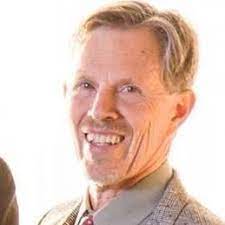Guest opinion: The decline and fall of the American empire

Photo supplied
Kimball ShinkoskeyOverwhelming numbers of Americans want more of the pleasures we are already experiencing — more sports, more celebrities, more holidays, more movies and video games, more restaurants, more travel destinations. For some 190 years, since the campaign to lower the workday from 12 hours to 10 hours got underway with a big strike in 1835, Americans have wanted less work and more play, and we still can’t get enough of that today.
Our business and banking leaders who provide these entertainments, and even our educators, politicians and church leaders who want the best for us, are often more than willing to go along with it all and participate in it.
It is the job of the social critic, the tortured writer, the citizen pundit, to stand apart from this stampede toward the cliff and offer a word of warning. These lonely souls tell us we need to change our course or risk losing everything we go home to after we exhaust ourselves with all the fun.
Traditionally, there were a lot of these idealists in America, these do-gooders, these worrywarts. They were known as young parents, journalists, scientists, book writers, sermonizers, political reformers, whistleblowers. But today, America does not do much in the way of family formation, newspapers are folding faster than a deck of cards, science is passe, book writers tell us all work and no play is a bad thing, few go to church, politicians want reform for the worse and not for the better, and whistleblowers can be found among our homeless population.
Good sense, common sense, fidelity to promises, responsible behavior, all this makes no sense to us except in moments of weakness that quickly pass.
In the very old days, the world had what were called “prophets” to offer these words of warning. Prophets were public figures who appeared at critical times to issue critical wisdom. Democracies like ancient Israel were famous for such prophets, and the history of their society, the Old Testament, is full of their writings. Democracies since then like Greece and Rome had prophets too, but often they were called instead philosophers, health scientists, defenders of the homeland, populist reformers. They were either political people, religious people, military people or academic people who stood a little bit taller than others and could see things that others couldn’t see. Prophets were critical of government, of commerce, of churches, of the wealthy, of almost everything except poor common people who were working hard to make ends meet and were deserving of better.
Prophetic warnings historically were issued at the start of great civilizations, throughout them and after their demise. For example, in the beginning of our own democratic nation President George Washington gave his famous farewell address where he warned about the dangers to family happiness through foreign military entanglement. We heeded him for a hundred years but ended up participating in a faraway battle between jealous kings known as World War I.
In the middle of our great American rollout across the known world, President Eisenhower gave his famous address on the perils of the military-industrial complex, which we have dutifully ignored as we stationed over 800 military outposts across the globe after World War II. Meanwhile, church prophets like those in the every-hundred-years religious awakenings in America, civil rights prophets like Martin Luther King, science prophets like Einstein and Oppenheimer, environmental prophets like Rachel Carson and Al Gore, and literary prophets like Ralph Waldo Emerson and many famous American poets added further warnings.
And yet, none of these warnings affects America’s leaders in business and government today in the slightest. They are wholly dedicated to undermining our constitutional foundations of freedom and happiness by demonstrating the same irresponsible personal lust for money and power that killed ancient democratic Athens, Rome, Israel, Anglo-Saxon England and many others. Average Americans are addicted to online shopping, porn, sports gambling, video games, hot cars and eating out, but our leaders love the even-more-powerful addictions of monopoly in industry and autocracy in government.
In America, all that remains is for some not-too-distant historian to sum up all our faults, warts and ignorant philosophies and seal up the story of America with a book for future civilizations, if there are any, to read about. This is what Edward Gibbon did in his “The History of the Decline and Fall of the Roman Empire.” I hope we have a few competent historians already taking notes for the American version of that long-running series.
Robert Kimball Shinkoskey is the author of books about ancient and modern democratic civilizations, including “Do My Prophets No Harm” and “The American Kings.”


